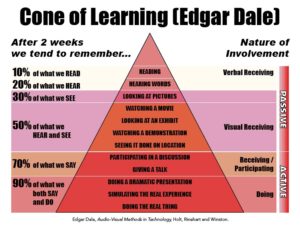When you decide to start a new activity, like learning a new language, going to the gym or taking up cooking classes, you first feel driven, enthusiastic and motivated. This “new year’s resolution” effect lasts about 3 weeks; then life gets in your way: kids get sick, the house needs maintenance, family is visiting from abroad …and your desire to learn a language or go to the gym is shuffled to the bottom of your priority list.
Keep in mind that learning languages in a language exchange is completely different from learning languages in a language school. It requires not only self-discipline but mostly commitment and persistence. In a school, your teacher will make sure you are progressing by following up on you and through a series of quizzes or exams. In a language exchange, YOU ARE IN CHARGE OF YOUR OWN LEARNING, and you will have to figure out ways to assess your progress. These tips will help you sail solo through the language learning world.
1. Assess your level
Make sure you know your language level. Language exchanges are always more successful if you already have a base in the language you want to improve. If you have zero knowledge of the language you want to learn, you will need to find a language partner who has some teaching skills and a lot of patience. If you have no idea about what level you are, this online tool might be useful: https://www.transparent.com/language-resources/tests.html. Once you know your language level, decide what’s important for you to learn according to your language goals.
2. Set your goals
Setting up goals is an essential step in your language journey. Goals work like a GPS. Think about when you plan a road trip; you get all your things ready, you get in the car, and then you configure your GPS so it can take you to your destination in a timely manner. Setting up goals will do exactly that; it will help you achieve the next level without wasting time. In a GPS, you will have to enter your destination, in goal planning you need to write down the result you want to achieve. Studies have proven that you are 42 % more likely to achieve your goals simply by writing them down! Watch how to set Smart goals for language learning by clicking here.
3. Find a language partner
The best way to find a language partner is through a language club. Look in your community or through meetup to find out where the meetings are happening. You can also ask your local universities or place an add in a community board.
4. Get prepared: Find a topic or conversation starter
It’s important to be prepared and to have a topic for your conversation. Without a topic, you will tend to talk about things you already know. A topic will push you out of your comfort zone and force you to use new vocabulary or expressions. You can find useful topics in the resources section of this page. Current events make great conversation starters.
5. Take notes
We all know the saying “memory is a faculty that forgets’’; so, don’t rely on your memory! According to the Cone of Learning, by the renowned American educator Edgar Dale, we only remember 20% of what we hear. When you are learning a new language, note-taking is crucial. I strongly suggest you get a notebook that will be strictly dedicated to the language that you are learning and divided into three sections: vocabulary, grammar, and expressions. Make sure you write down every new word you learn for your future reference. Please note that studies have demonstrated that longhand note-taking is by far more efficient than typing on a laptop or your smartphone. By writing every new information that you have learned you will be able to easily track your progress.

6. Don’t be afraid to make mistakes
The fear of being judged by others can hold us back, so keep in mind that in language learning mistakes are the stepping stones that’s will lead you towards fluency. Think about a child who is learning how to walk; he will fall many times before he grasps the walking skill. As a parent, you encourage the toddler positively, right? Well, that’s exactly what you need to do with yourself. Every mistake is important! Believe me; I’ve made very embarrassing mistakes in my language learning journey. If it happens, have a good laugh and move on!
7. Be an active listener
Listening is an overlooked learning skill, especially during a group language exchange. I have noticed, through many years of experience organizing language exchanges, that most of the time people are too busy preparing what they are going to say so they barely listen to the others. By carefully listening, you will be able to detect some language structures that are different from the ones you use and learn new ways to say things, new expressions, and slang. Show your interest in what people are saying by asking questions and pushing the conversation forward. If something is not clear, don’t be shy to ask other group members to repeat, explain or translate. The main purpose of the language exchange is for you to be able to follow conversation and participate! Ask your partners to slow down if they speak too fast.
8. Be a conscious speaker
I have noticed through most of my language exchanges, especially during group conversations, two kinds of participants, the passive ones who prefer observing and taking notes and the conversation hijackers who want to say it all. The best thing is to find a balance between participating and letting others have their time to shine too. If you are the type of person who highjacks the conversation, practice concisely structuring your ideas without diverting or repeating; on the other hand, if you are the shy type, make an effort to express your ideas in long sentences, and avoid giving simple “Yes” or “No” answers.
9. Don’t be too pushy on grammar rules
I love grammar and when I am learning a language, I always need to know its grammar structure. However, I suggest you don’t focus too much on grammar questions during your language exchange. Unless your partner is a grammar guru, keep in mind that most of the people speak their native language without knowing the details of the grammar. If you have grammar questions, the best thing to do is to write them down in your notebook and search for some answers on the Internet. wordreference.com is an excellent site for that!
10. Enjoy and complement with language learning tools
Learning a language must be fun. If you find it stressful, find another language exchange partner or group. You can complement your language learning experience with some fun tools available online.

